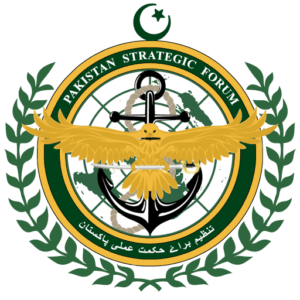Pakistan’s Small and Medium Enterprises (SMEs) hold immense potential for driving economic growth, creating jobs, and fostering innovation. However, the country’s complex corporate laws and burdensome tax regulations act as significant barriers, preventing many businesses from registering and contributing to the wider economy. In this article, we will explore the challenges faced by SMEs due to high tax rates, inconsistent tax laws, and the lengthy and cumbersome registration process. Additionally, we will emphasize the importance of promoting SMEs as a catalyst for Pakistan’s development, encouraging entrepreneurship and stimulating economic prosperity.
Complex Corporate Laws and Tax Burdens
One of the major obstacles hindering SMEs in Pakistan is the complex corporate laws and high tax burdens. The prevailing tax rates can be stifling for small businesses (standard corporate tax rate is 29% and for small businesses 20%) leaving them with limited resources to invest in growth and expansion. Moreover, the inconsistency in tax laws creates uncertainty and makes it challenging for entrepreneurs to plan and operate their businesses effectively.
Unbearable Months-Long Registration Process
The process of registering a business in Pakistan can be described as cumbersome, time-consuming, and laden with unnecessary paperwork. This lengthy bureaucratic process can discourage potential entrepreneurs from formalizing their ventures and pushing them towards informal, unregistered operations. This informal sector not only limits government revenue but also deprives SMEs of access to various benefits, financial support, and growth opportunities.
Promoting SMEs for Wider Economic Development
Encouraging and supporting SMEs is crucial for the overall development of Pakistan’s economy. SMEs have the potential to drive job creation, foster innovation, and enhance productivity. By promoting SMEs, the country can move towards economic diversification, reduced unemployment rates, and enhanced competitiveness in the global market.
Stimulating Entrepreneurship and Investment
A streamlined business registration process will significantly contribute to stimulating entrepreneurship and attracting investment. When the barriers to entry are reduced, aspiring entrepreneurs are more likely to formalize their businesses, leading to increased participation in the formal economy. This, in turn, allows the government to collect more tax revenue, which can be reinvested into infrastructure, education, and other public services.
Role of Technology in Simplifying Registration
Embracing digital solutions and technology can revolutionize the registration process in Pakistan. By creating an efficient and user-friendly online platform, entrepreneurs can complete the registration process with ease and speed. This approach not only reduces paperwork but also ensures transparency and accountability, thereby fostering a conducive environment for business growth.
Addressing the Taxation Challenges
To encourage SME growth, there is a pressing need to reevaluate the tax structure. Reducing tax rates for SMEs and providing clear and consistent tax laws will create an enabling environment for these businesses to thrive. The government can explore tax incentives, such as tax breaks for start-ups and SMEs, to stimulate investment and promote formalization.
Conclusion
Streamlining the registration process for SMEs in Pakistan is essential for unleashing their potential to contribute significantly to the wider economy. The burden of complex corporate laws, high tax rates, and lengthy registration procedures hinders the growth of SMEs, preventing them from playing a more substantial role in economic development. By simplifying registration, reducing tax burdens, and encouraging entrepreneurship, Pakistan can unlock the true potential of its SME sector and pave the way for a more prosperous and vibrant economy. Supporting and promoting SMEs is not only beneficial for entrepreneurs but also for the country as a whole, fostering innovation, creating employment opportunities, and driving sustainable economic growth.
Author: Taimur Hassan
#TeamPakistanStrategicForum






